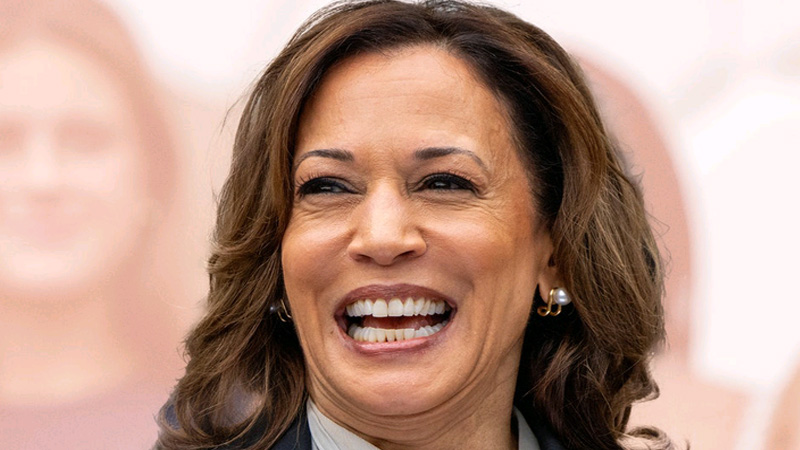Kamala Harris is Likely to Lose 2024 Election, Presidential historian Warns

Photo: Samuel Corum/Getty Images
Presidential historian Allan Lichtman argued that Vice President Kamala Harris’s potential path to the White House is far from certain, warning that numerous unresolved issues could significantly impact the outcome of the upcoming presidential race.
In his latest report on the state of the 2024 election, Lichtman took a critical look at what he describes as the “herd mentality” of the U.S. mainstream media, which he believes has prematurely shifted its focus from Donald Trump to Kamala Harris as the likely winner.
Lichtman, known for his accurate predictions of presidential elections using his “Keys to the White House” system, expressed concern over what he perceives as a 180-degree turn in the media’s portrayal of the Democratic Party’s chances of victory.
According to an article by Newsweek on Monday, August 12, 2024, he noted that the same media outlets that once seemed to anoint Donald Trump as the inevitable next president are now almost unanimously declaring Harris as the frontrunner to succeed Joe Biden.
“The media that once virtually anointed Donald Trump as the next president is now touting Vice President Harris as overwhelmingly likely to be the next president of the United States,” Lichtman said.
“The problem with this pack journalism is that it misses all the nuances of a presidential campaign and fails to comprehend how presidential elections really work.”
Lichtman argues that this kind of simplistic and premature judgment overlooks the complex and often unpredictable nature of presidential elections.
He emphasizes that while Harris has significant strengths, including her experience as vice president and her historic role as the first woman and first person of color to hold that office, the road to the White House is still fraught with potential challenges.
These challenges include ongoing political and economic issues, the potential for unforeseen events, and the effectiveness of her campaign strategy.
Lichtman also pointed out that while Harris has gained substantial support within the Democratic Party and among key demographics, there are still factors that could sway voters in the months leading up to the election.
These include her ability to address concerns about the economy, healthcare, and national security—issues that have historically been crucial in determining the outcome of presidential races.
Moreover, Lichtman highlighted the importance of turnout, especially among young and minority voters, who have been critical to Democratic victories in recent elections.
Another aspect Lichtman discussed is the unpredictability of the Republican Party’s strategy.
He suggested that while Trump remains a dominant figure within the GOP, any shifts in Republican strategy or the emergence of a strong alternative candidate could complicate Harris’s path to victory.
Additionally, the potential for significant political developments, such as major legislative accomplishments or controversies, could also play a decisive role in shaping the final outcome.
Lichtman’s analysis serves as a reminder that in the world of presidential politics, nothing is ever truly certain until the votes are counted.
He cautions against relying too heavily on early predictions and media narratives, urging observers to consider the broader context and the many variables that can influence the direction of an election.
While Vice President Harris may currently be seen as a leading contender for the presidency, Allan Lichtman warns that her path to the White House is not yet guaranteed.
The historian’s insights underscore the need for a more nuanced understanding of the electoral process, one that takes into account the complexities and uncertainties that define every presidential race.
As the 2024 election approaches, both Harris and her supporters will need to remain vigilant and adaptable, ready to respond to the challenges and opportunities that will inevitably arise in the months ahead.





